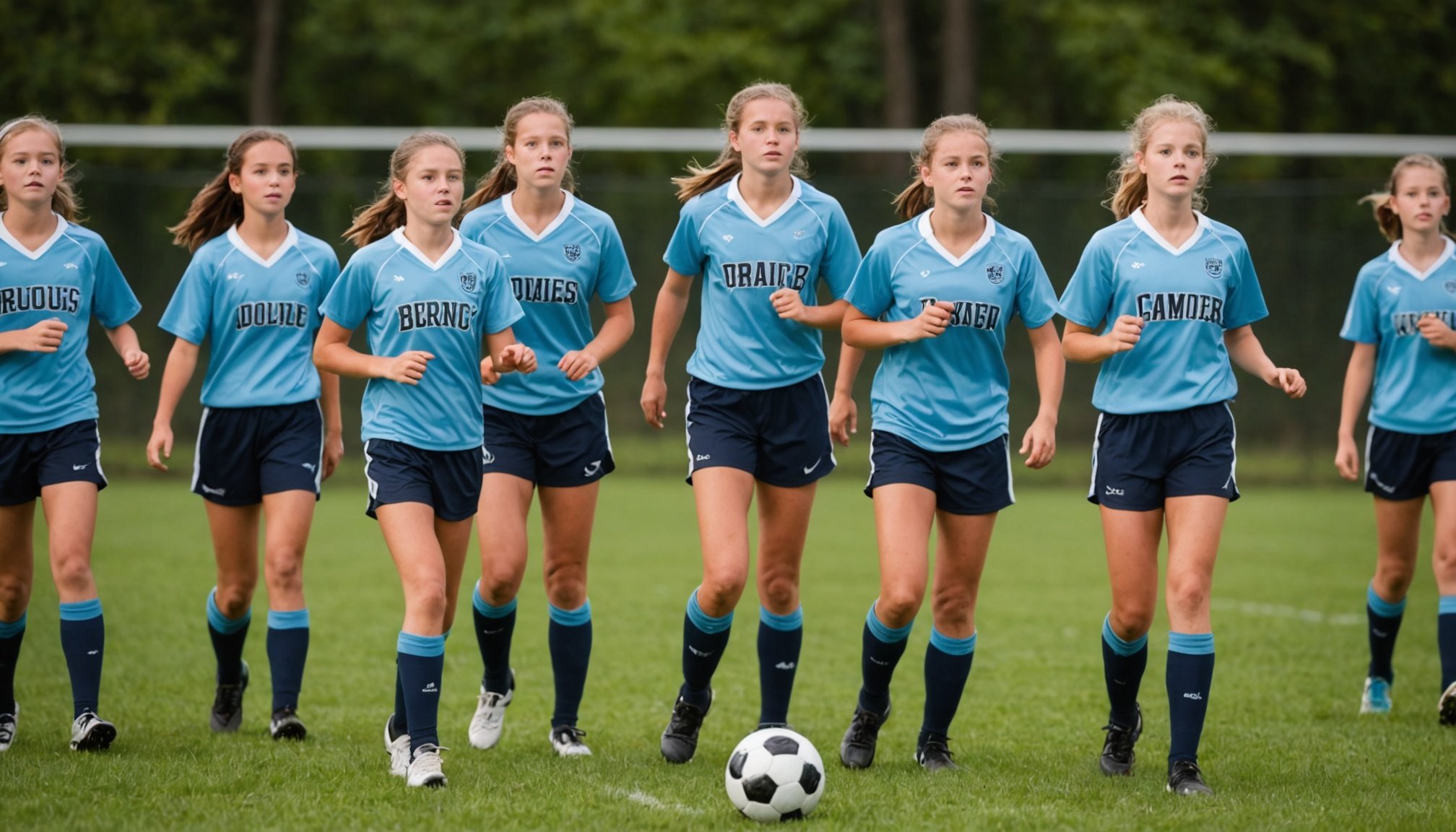Understanding Social Anxiety in Teens
Social anxiety is a common challenge among teenagers, often characterized by intense fear and nervousness in social settings. It can stem from various causes, including genetic predispositions, environmental factors like bullying or peer pressure, and significant life changes. These factors may trigger anxiety by amplifying insecurity and fear of judgment.
Statistics reveal that social anxiety affects approximately 9% of adolescents between the ages of 13 and 18, indicating its prevalence as a significant mental health concern. This anxiety can impact a teen’s daily life, hindering their ability to participate in school activities, maintain friendships, and affect their self-esteem.
Also to read : Discover the Lasting Benefits of Hyperbaric Oxygen Therapy for Enhanced Athletic Recovery
The consequences of social anxiety extend beyond social interactions. It can lead to long-term mental health issues if not addressed promptly. For instance, avoiding social situations to escape anxiety reinforces feelings of isolation and can exacerbate self-perception issues. Furthermore, teens may develop unhealthy coping mechanisms, such as the reliance on technology to avoid face-to-face interactions.
Understanding these dynamics allows parents, educators, and peers to offer better support, creating an environment where adolescents feel secure and empowered to engage socially without overwhelming anxiety.
Additional reading : Essential Stretching Techniques for Ballet Dancers: Minimize Injuries and Maximize Performance
The Role of Team Sports in Building Confidence
Team sports are a valuable avenue for fostering personal growth and enhancing self-esteem in young individuals. Participating in team activities can be instrumental in developing essential social skills, such as teamwork and collaboration, which are crucial for navigating teenage challenges. When teenagers engage in sports, they learn to communicate effectively and work towards a common goal, promoting interpersonal skills.
Embracing the dynamics of team sports also offers emotional experiences that contribute to confidence building. The sense of belonging to a team can stave off feelings of isolation often connected to social anxiety. Paired with emotional support from peers, this environment nurtures resilience and adaptability. Studies have shown that physical activity is linked to improved mental health, underscoring the psychological benefits of maintaining an active lifestyle.
Moreover, regular involvement in team sports encourages a disciplined routine and offers teenagers the chance to celebrate individual achievements. This process not only boosts their self-confidence but also assists in managing and overcoming anxiety. Overall, team sports provide a supportive framework for youth to thrive socially and emotionally, preparing them for future challenges.
Evidence-Based Benefits of Team Sports
Participating in team sports offers a multitude of benefits for youth development, evidenced through extensive psychological research. Engaging in sports not only fosters physical health but also significantly contributes to mental and emotional well-being, laying a foundation for lifelong healthy habits.
Physical Health Benefits
Team sports play a vital role in promoting physical fitness, which is closely linked to enhanced mental health. Regular exercise releases endorphins, known to elevate mood and reduce feelings of anxiety. This mood enhancement provides teens with a natural coping mechanism, crucial during challenging times. Furthermore, sustaining an active lifestyle from a young age instils a sense of discipline and commitment, translating to long-lasting health advantages.
Social Skills and Communication
Team sports also nurture essential social skills, encouraging effective communication and cooperation within group dynamics. As teenagers work together to achieve common goals, they develop teamwork, fostering deeper relationships and creating robust support networks. This collaborative environment enhances their communication prowess, offering continuous opportunities to practice and refine these skills.
Resilience and Coping Strategies
Moreover, the sports arena is an excellent platform for developing resilience. Facing failures and setbacks in a controlled setting helps adolescents cultivate perseverance. These experiences equip them with transferable skills, aiding in managing anxiety beyond sports-related contexts.
Personal Anecdotes and Testimonials
Personal stories offer profound insights into how team sports can transform teenagers’ lives. Take, for example, the story of a once-shy adolescent who, through basketball, overcame her social anxiety, finding confidence both on and off the court. Her mother noticed a significant improvement in her daughter’s interactions, observing how sports challenged her and provided a sense of achievement. Such testimonials highlight the real-life impact youth activities have on self-esteem and communication skills.
From a parental perspective, sports can be a double-edged sword of challenge and triumph. Parents often witness profound changes as their children engage with peers in competitive yet supportive environments. These shifts underline the power of structured physical activity in addressing teenage challenges.
Coaches and educators, too, play pivotal roles. With patience and encouragement, they help teens navigate their emotional landscapes, proving that confidence building is not just about the game but about mentoring. They advocate the priceless benefits of sports in real-time contexts, fostering resilience and camaraderie among teens. These stories inspire others to embrace the robust and encompassing benefits of team sports in holistic development.
Expert Opinions on Sports and Confidence
Renowned psychologists and sports coaches consistently underline the substantial psychological benefits of engaging in team sports for adolescents. They affirm that these activities serve as a powerful platform for confidence development. Sports psychologist Dr. Emily Harris highlights that the structured environment of team sports offers a safe space for young individuals to venture out of their comfort zones, fostering emotional resilience and self-assuredness.
Coaches often witness firsthand the transformation in teens as they navigate team dynamics. Coach John Markley explains that through collaboration and shared goals, adolescents learn to manage not only their social interactions but also personal aspirations. This dual growth is crucial for developmental psychology, emphasizing the holistic nature of sports as a developmental tool.
Studies have demonstrated that participation in team sports is linked with enhanced emotional health, diminishing symptoms of social anxiety and depression. A study led by Dr. Laura Jennings revealed that adolescents involved in regular youth activities showed marked improvements in self-esteem and emotional regulation compared to those who abstained from such engagements. These expert insights collectively advocate for the myriad benefits of integrating team sports into the developmental journeys of teenagers.
Actionable Tips for Engaging in Team Sports
Participating in team sports presents numerous opportunities for teens to enhance both their physical and mental health. For parents aiming to encourage this journey, it’s crucial to create an open dialogue about the benefits of team sports. Highlight how these activities contribute to confidence and provide a supportive environment for personal growth.
For teens, choosing the right sport is pivotal. Consider interests and physical abilities to ensure an enjoyable experience that fits individual preferences and goals. Research local youth sports teams and attend trial sessions to find the best match.
Addressing initial anxiety around participation is essential. Start with sports clinics or camps where the atmosphere is usually more relaxed and less competitive. Encourage gradual engagement to build self-esteem without overwhelming anxiety. Teens should embrace this phase as a stepping-stone to longer-term involvement in team sports.
Additionally, utilize available resources and networks. Many schools and communities offer sports programs tailored to various skill levels, as well as mentorship opportunities. These resources help newcomers transition smoothly into the sporting world, fostering a sense of belonging and encouraging active participation. Through strategic steps and informed choices, teens can successfully integrate into team sports, reaping holistic benefits.
Addressing Challenges in Participation
Engaging in team sports can be a rewarding, yet challenging journey for teens. Common obstacles include initial anxiety, fear of judgement, and lack of inclusive environments. Many adolescents find it difficult to enter or continue participating due to pressure to perform perfectly, which can exacerbate social anxiety. Addressing these challenges is crucial to foster confidence and belonging within team settings.
Strategies for Inclusion:
-
Create Welcoming Teams: Encouraging coaches and team members to promote inclusivity can significantly ease the transition for new participants. Teams should focus on supportive communication, ensuring every member feels valued and heard.
-
Provide Mental Health Resources: Access to counsellors or psychologists who can offer guidance tailored to overcoming sports-related anxiety is vital. Such support helps teens manage anxiety and reduces the pressure often associated with competitive sports.
-
Implement Flexible Participation Options: Allowing various levels of involvement, such as casual or recreational leagues, can accommodate those hesitant about competitive environments.
By prioritizing inclusivity and support, sports programs can alleviate the barriers teens face, encouraging sustained participation. This not only benefits their physical health but also enhances mental well-being and social skills development.
Further Reading and Resources
Further expanding one’s understanding of social anxiety and the pivotal role of team sports in youth development can be enlightening. A host of resources delve into these topics with nuanced insights.
For those interested in the intersection of social anxiety and sports, several insightful books and articles are recommended. These include “The Anxiety Workbook for Teens” by Lisa M. Schab, which provides actionable strategies to cope with anxiety, and “Sports and Social Anxiety” by Dr. Ethan Cooper, offering a detailed exploration of how sports can be a conduit for overcoming anxiety.
Moreover, numerous organizations are dedicated to supporting youth sports and mental health. Groups like Active Minds and the National Alliance on Mental Illness (NAMI) provide valuable information and support networks for teens and parents alike.
Additionally, local sporting bodies often offer entry points for youth engagement. Communities usually host sports leagues that are easily accessible. To get involved, it’s beneficial to contact regional sports associations or mental health professionals who can tailor recommendations.
These resources aim to broaden knowledge and find effective strategies to support teens facing teenage challenges related to social anxiety.











